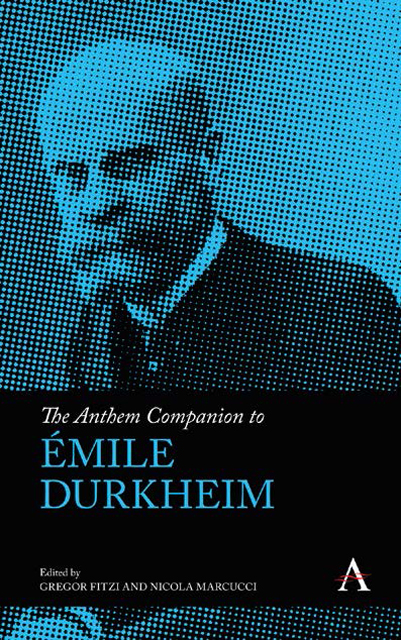Chapter 7 - Justice as Institution Solidarity and the Obligation of Modern Societies According to Durkheim
Published online by Cambridge University Press: 09 December 2022
Summary
Introduction
The legal and political traditions of Europe and the United States have often been compared according to the divergence in the way they understand the relation between social justice and legal and political institutions. In other words, how welfare policies have historically transformed the way we understand equality and social justice. There are many ways to make sense of the distance between these two legal and political traditions.
Meanwhile, there are good reasons to look at this issue from a perspective that, instead of just trying to make sense of these cultural and political differences, tries to give voice to shared aspirations in contemporary Europe and the United States so we can rethink the relation between social justice and legal and political institutions. These common hopes become more evident when we focus on the main reasons that seem to have blocked the possibility of questioning this relation, in both Europe and the United States.
First is the fact that neoliberal policies have globally offered an ideology that sees the welfare state as a constraint on the individual-entrepreneurship required by flexible and globalized markets. While this ideology's ability to impoverish institutions should be geopolitically contextualized, a commonality is visible if we consider neoliberalism as a global ideology. Secondly— for different reasons, associated on one side with American exceptionalism and its traditionally rooted opposition to socialism and on the other with controversies about the political form of European Union that have polarized debate around the narrow alternatives of nationalism and liberalism (Karsenti and Leieux 2017)— the split between social justice and a diminished understanding of the role of legal and political institutions seems to be taken for granted and translated into the language of normative political philosophy.
These aspects, even as they partially block a proper historical understanding of welfaristic institutions, could help open new interrogations about these same institutions and their future. Contemporary critical debates on both sides of the Atlantic are trying to question the intellectual and political innovation of welfaristic institutions, trying to evade the reductionism imposed by a power-centered vision understanding these institutions either, in a Marxian perspective, as the formal expression of material struggles or, in a Foucauldian perspective, as institutions fully operating within the logic of modern governmentality.
- Type
- Chapter
- Information
- The Anthem Companion to Émile Durkheim , pp. 155 - 174Publisher: Anthem PressPrint publication year: 2022

